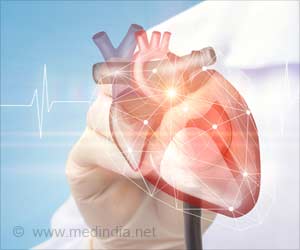Patients with stable coronary artery disease should be on guard against depression and anxiety. For such mental stress could trigger cardiac events.
Patients with stable coronary artery disease should be on guard against depression and anxiety. For such mental stress could trigger cardiac events, new study shows.
"We found that both major depression and generalized anxiety disorder were more common in cardiac patients than in the general community. More importantly, both predicted about a doubling in risk for major cardiac events over two years," study chief Dr. Nancy Frasure-Smith, from the University of Montreal said.She added that her study differed from previous research in that it focused on patients with stable heart disease -- not on those who were hospitalized for a cardiac event such as heart attack.
As reported in the Archives of General Psychiatry this month, Frasure-Smith along with Dr. Francois Lesperance, also from the University of Montreal, examined the prognostic significance of depression and anxiety in 804 patients with stable heart disease who were followed for 2 years.
Overall, 27 percent of patients showed signs of depression on a standard test and 41 percent showed signs of anxiety. Major depressive disorder was diagnosed in roughly 7 percent of patients while about 5 percent had generalized anxiety disorder.
Major depressive disorder, generalized anxiety disorder, as well as elevated scores on the depression and anxiety tests all increased the risk of a major coronary event. Of these, major depressive disorder was the strongest factor, increasing the risk by 2.85-fold.
No additive effect was seen; patients with both major depressive disorder and generalized anxiety disorder had roughly the same risk of suffering a major coronary event as patients with just one of the disorders, news agency Reuters reports.
Advertisement
"Extra efforts are justified in helping them change their cardiac risk factors, assure treatment compliance, and improve their emotional and social functioning," she added.
Advertisement
Source-Medindia
GPL/GA











